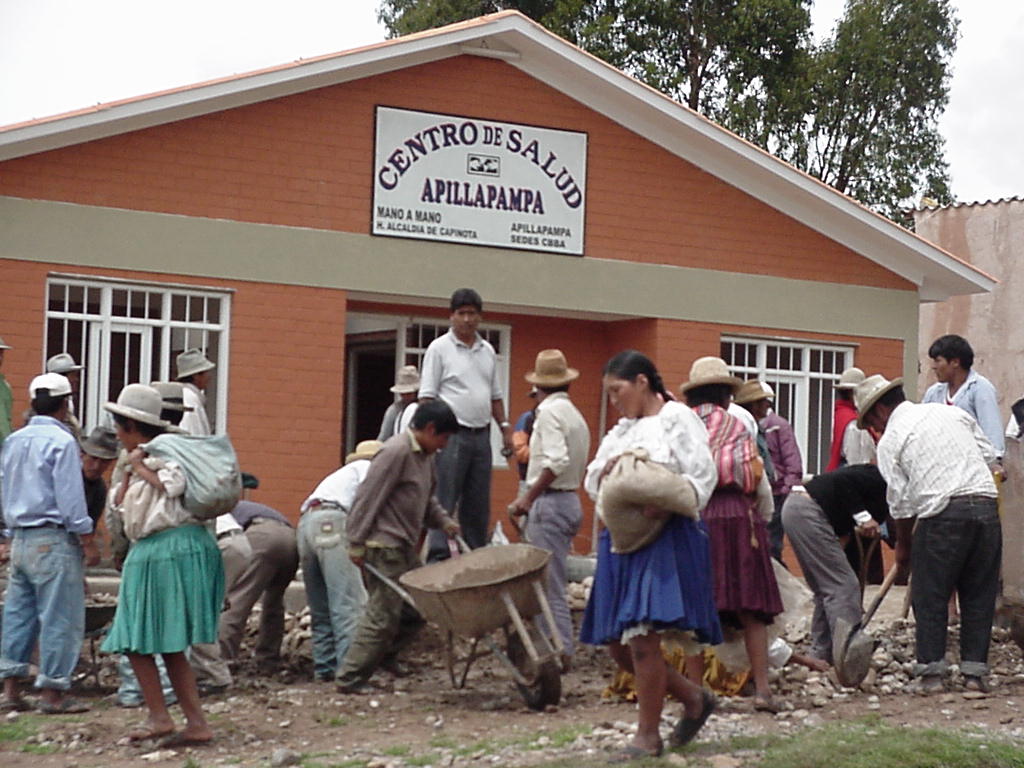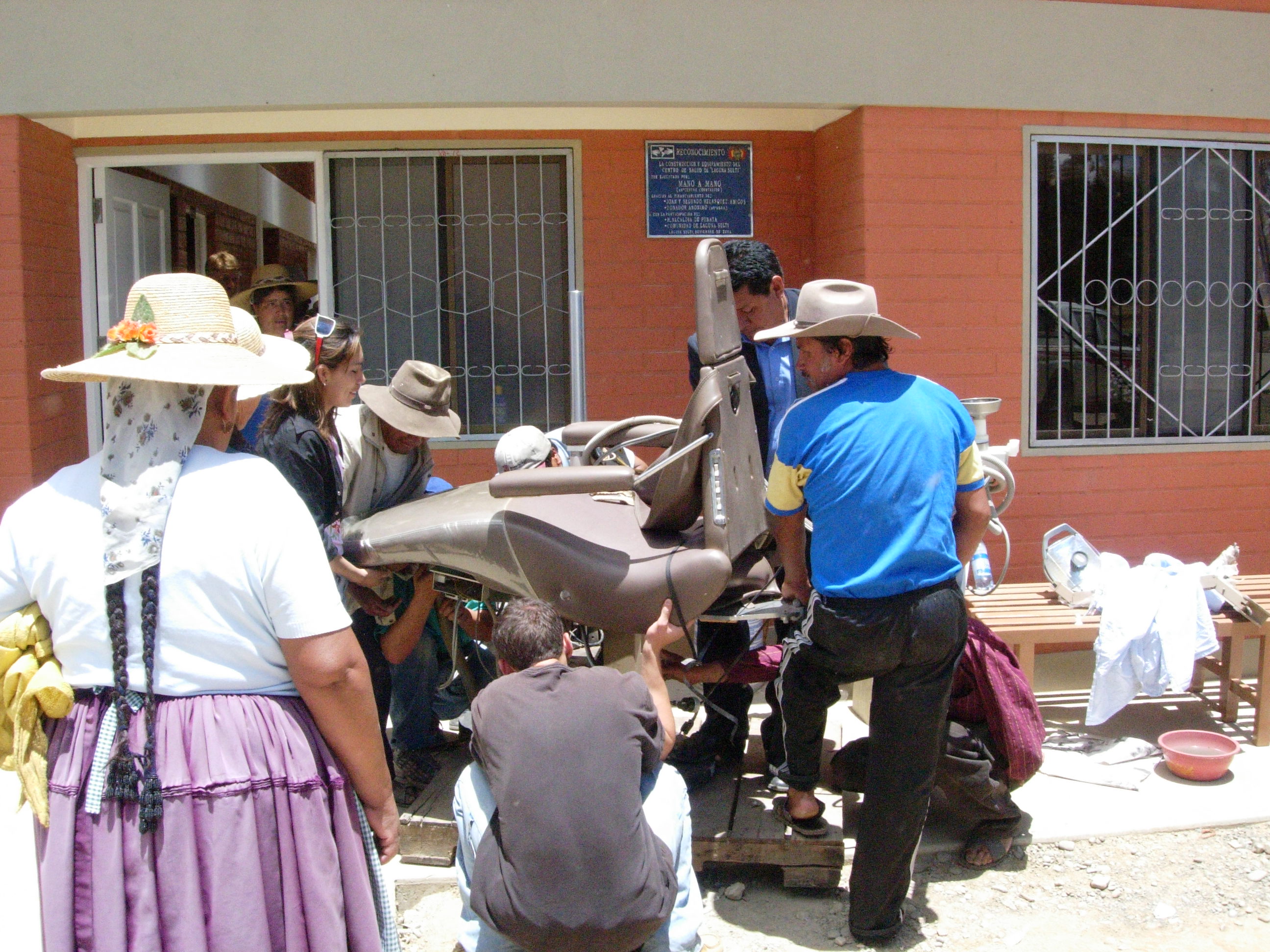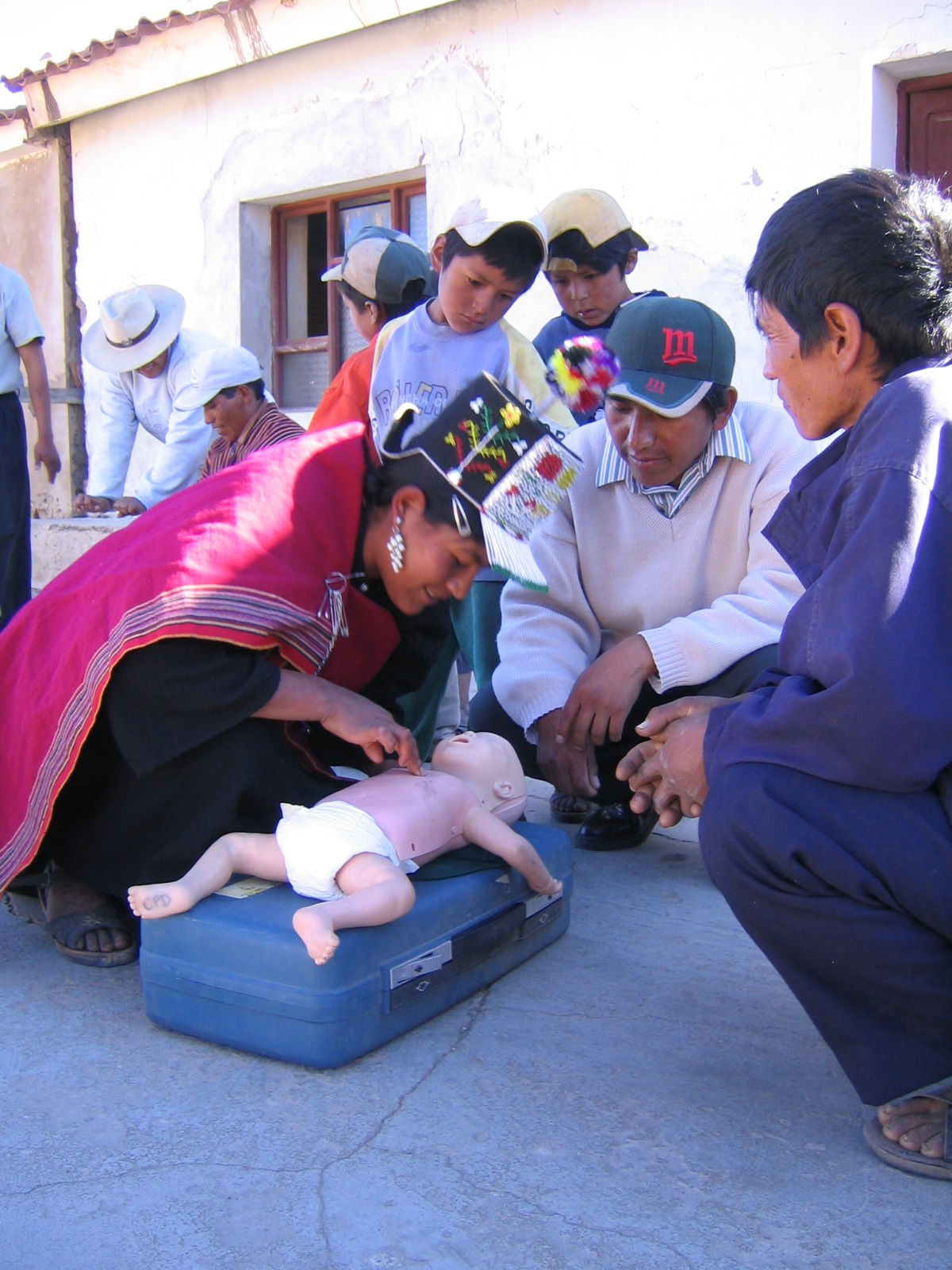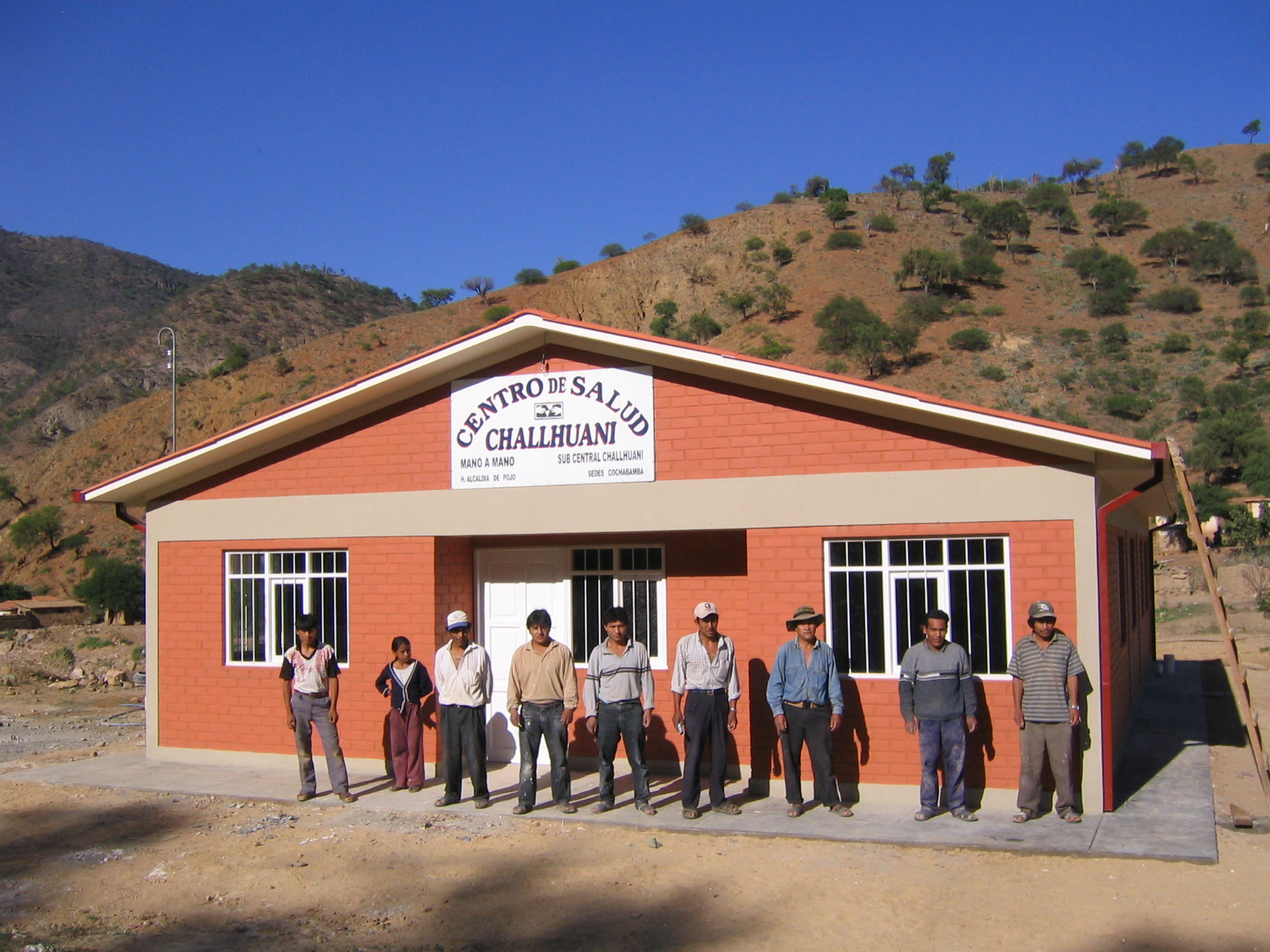Our Model
The Community Requests the Project
First, the community in Bolivia approaches us to request a project. This is a huge point; the local community is the driver of the process, Mano a Mano does not pick locations or projects itself. The community goes to our office in Cochabamba to request whatever project they have decided is most important, from a clinic to a school to a road or water project, and are put on the waiting list until funds are available.
Everybody has a Specific Role During Construction
When there is funding, Mano a Mano meets with the community and local leaders to sign an agreement detailing everyone’s responsibilities:
- Mano a Mano International (the US office) usually raises the money to provide a portion of the funding (this funding is the seed money to get the project started, that allows us to leverage funding sources in Bolivia) and also ships most of the needed medical equipment, supplies, and furnishings.
- Mano a Mano Bolivia (Mano a Mano’s counterpart organization in Bolivia) oversees the entire construction process and provides the skilled labor (architect and contract construction workers), construction materials, and continuing health education for the staff and local community. They also build some of the furnishings for the clinic in their shop (e.g. hospital beds, chairs, exam tables). They are the primary organization responsible for the project.
- The community provides a plot of land, any locally available materials, and unskilled volunteer labor (this usually amounts to around 4,000 hours per clinic), and a portion of funding (usually 2-3%). This is a huge commitment by the community and shows how important the project is to them.
- The local municipal government agrees to pay for some of staff salaries for the doctor and the nurse and include these expenses as a permanent line item in their budgets, to purchase specialized equipment (e.g. microscope, centrifuge), and provide a significant portion of funding – in a typical clinic project about 20-50%+ of the project cost is paid for by the municipality and the community.
- As part of its national health program, the Bolivian Health Ministry provides vaccinations, some medications, and free services for expecting mothers and children up to 5 years old (including its newest program that pays mothers to attend pre and post-natal checkups during the pregnancy), and also pays for the majority of the staff salaries (82% of Mano a Mano’s 450+ medical staff are paid for by the Health Ministry).
Ongoing Support after the Project is Built
Continuing Health Education
In addition, Mano a Mano Bolivia staff provides continuing education courses for the doctors and nurses on staff, as well as basic life support training to a group of community residents that become volunteer health promoters. Our health education program has a very good reputation in Bolivia, and the program has expanded in recent years to include Acute Care International Conferences that are open to all Bolivian medical professionals, not just those working in Mano a Mano clinics.






